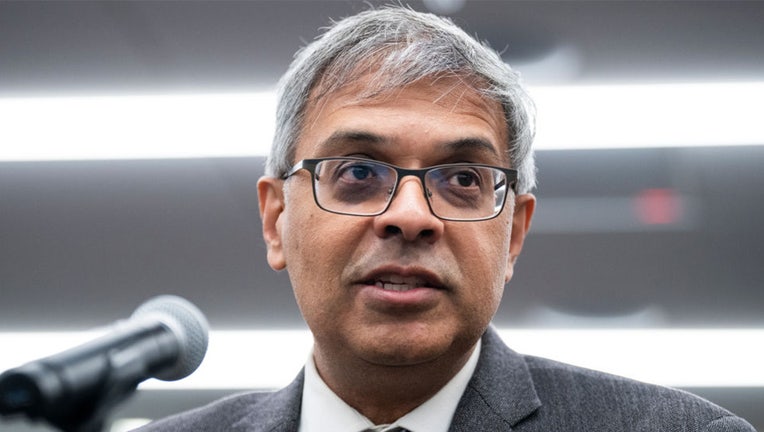Trump names pandemic lockdown critic Jay Bhattacharya to lead NIH

FILE - Dr. Jay Bhattacharya speaks during a roundtable discussion with members of the House Freedom Caucus on the COVID-19 pandemic at The Heritage Foundation on Thursday, Nov. 10, 2022. (Tom Williams/CQ-Roll Call, Inc via Getty Images)
President-elect Donald Trump has announced Dr. Jay Bhattacharya, a health economist and Stanford University professor, as his pick to lead the National Institutes of Health (NIH). Known for his outspoken criticism of pandemic lockdowns and vaccine mandates, Bhattacharya’s appointment is seen as a significant departure from traditional leadership at the country’s top medical research agency.
"Dr. Bhattacharya will restore the NIH to a Gold Standard of Medical Research," Trump said in a statement Tuesday. The president-elect emphasized Bhattacharya’s role in addressing chronic illnesses alongside Robert F. Kennedy Jr., his nominee for Secretary of Health and Human Services.
Why Bhattacharya’s nomination is controversial
Bhattacharya, 56, gained prominence during the COVID-19 pandemic as a co-author of the Great Barrington Declaration, which criticized widespread lockdowns and advocated for "focused protection" of vulnerable populations. The declaration faced sharp rebukes from public health leaders, including then-NIH Director Dr. Francis Collins, who called it "not mainstream science."
A vocal critic of vaccine mandates and other public health measures, Bhattacharya has argued that pandemic policies eroded public trust in health authorities. In 2021, he described lockdowns as "the single biggest public health mistake," during a panel discussion with Florida Gov. Ron DeSantis.
Challenges ahead in Senate confirmation
Bhattacharya’s nomination will require Senate approval, which is expected to be contentious. Supporters view his appointment as a move toward reform and transparency, while critics question whether his views could undermine the NIH’s credibility.
The NIH, with its $48 billion budget, plays a critical role in funding medical research, including cancer treatments, vaccines, and opioid addiction therapies. Critics worry that Bhattacharya’s leadership could politicize the agency’s work, while supporters argue his perspective could bring much-needed change to public health approaches.
The NIH’s future under Bhattacharya
If confirmed, Bhattacharya is expected to shift NIH priorities toward addressing chronic illnesses and rebuilding trust in public health research. Historically, the NIH has funded breakthroughs like mRNA vaccines and cancer therapies, but its role has come under scrutiny during the pandemic.
Supporters see Bhattacharya’s appointment as a chance to reform public health strategies and promote transparency, while critics caution against politicizing the agency. Trump has expressed confidence in Bhattacharya’s ability to "make important discoveries that will improve health and save lives," but his leadership will be tested as he faces Senate scrutiny and a divided public health landscape.

